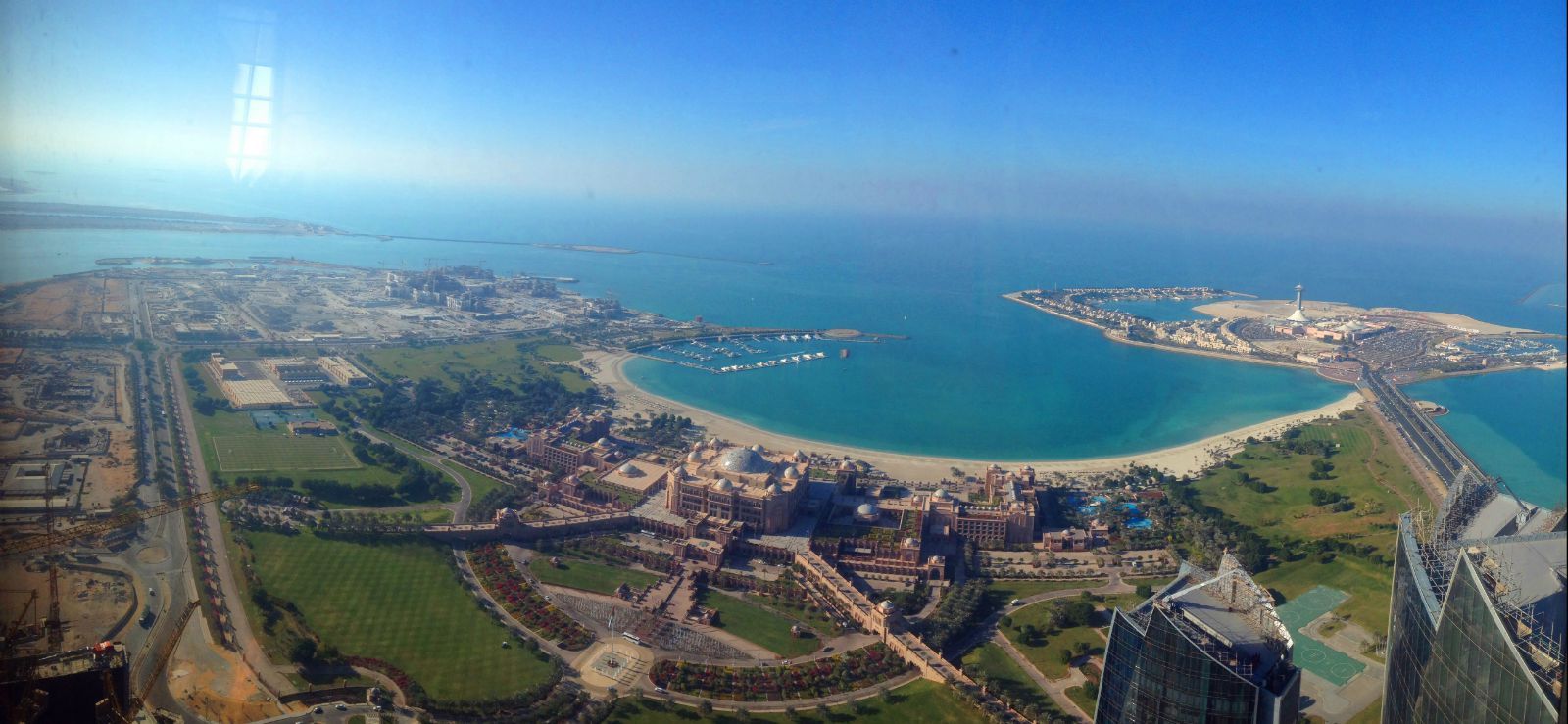Choosing the right jurisdiction for your business is one of the most critical decisions an entrepreneur or corporation will make. It impacts everything from your tax obligations and operational scope to your legal framework and market perception. For those looking to establish a presence in globally recognized hubs, particularly in the Middle East, three primary models emerge: Mainland, Free Zone, and Offshore companies.
Understanding the fundamental difference between mainland free zone and offshore structures is not just about compliance; it's about strategic alignment with your business goals. Are you targeting local customers, aiming for international trade, or seeking asset protection and tax efficiency? The answer will guide your choice. This article provides a detailed, multi-faceted comparison to help you navigate this complex landscape.

Before diving into the comparisons, it's essential to define what each term means in the context of company formation, using jurisdictions like the United Arab Emirates (UAE) as a prime example.
A Mainland company is incorporated under the jurisdiction of the respective country's general commercial laws. It is licensed by the Department of Economic Development (DED) in emirates like Dubai or Abu Dhabi. This structure allows a company to conduct business freely within the local market and internationally without restrictions. The key characteristic of a mainland entity is its direct access to the host country's economy.
A Free Zone company is established within a designated geographic area that offers special incentives, such as 100% foreign ownership, full repatriation of profits and capital, and exemption from import and export duties. Each Free Zone (e.g., Dubai Multi Commodities Centre, Jebel Ali Free Zone) is governed by its own authority and has its own set of regulations. The primary difference between mainland and free zone here is that a Free Zone company is generally restricted to operating within the zone or internationally; doing business directly with the local market requires engaging a mainland distributor or agent.
An Offshore company is a legal entity registered in a jurisdiction where it is not permitted to conduct business locally. Its purpose is typically to hold assets, conduct international business transactions, or manage investments while benefiting from the jurisdiction's favorable tax laws and privacy protections. The critical difference between offshore entities and the others is their non-resident status; they are legally separated from the local economy of the country where they are incorporated.
This is perhaps the most significant practical difference between mainland free zone and offshore companies.
Mainland Companies: These entities enjoy unrestricted access to the local market. They can trade directly with individuals and other companies within the country, bid on government tenders, and open retail outlets. If your primary goal is to sell products or services to the local population, a mainland license is mandatory.
Free Zone Companies: Market access is more defined. A free zone company can conduct business 100% within its specific free zone, with other free zones, and internationally. However, to sell goods within the local mainland market, the company must clear the goods through customs (implying importation) and typically use a local distributor or agent. Some Free Zones now offer enhanced licenses that allow limited mainland trading under specific conditions, blurring this line slightly.
Offshore Companies: These entities have no access to the local market. Their legal structure prohibits them from conducting any business within the jurisdiction of incorporation. An offshore company's activities are strictly confined to international business and holding activities outside that jurisdiction.
Ownership laws are a major factor attracting foreign investment, and the difference between mainland free zone and offshore structures is stark.
Mainland Companies: In many Gulf Cooperation Council (GCC) countries, a mainland company traditionally required a local sponsor or partner who holds 51% of the shares. However, recent legislative changes, particularly in the UAE, have dramatically evolved this. Now, 100% foreign ownership is allowed for many sectors and activities, though certain strategic sectors may still require a local partner. It is crucial to check the latest regulations for your specific activity.
Free Zone Companies: This is a key selling point. Free zone authorities allow 100% foreign ownership of the enterprise. There is no requirement for a local sponsor, giving the foreign investor complete control over their business.
Offshore Companies: Similar to free zone entities, offshore companies permit 100% foreign ownership. The focus is on providing a flexible and anonymous structure for international investors, with nominee shareholder services often available for enhanced privacy.

Taxation is a central pillar in the difference between mainland free zone and offshore discussion, especially with the global introduction of Corporate Tax.
Mainland Companies: These companies are subject to the federal tax laws of the country. With the UAE introducing a federal Corporate Tax, mainland companies will generally be subject to a standard rate (e.g., 9% on profits above a certain threshold). They are also subject to Value Added Tax (VAT) where applicable.
Free Zone Companies: Free zone entities can benefit from a Corporate Tax incentive of 0% on qualifying income, provided they comply with all regulatory requirements and maintain adequate economic substance in the UAE. This "Qualifying Free Zone Person" status makes free zones highly attractive. They are also exempt from import/export duties and have full profit repatriation.
Offshore Companies: Traditionally, offshore companies are established in jurisdictions with zero taxation on income, profits, capital gains, or withholding taxes for non-resident activities. They are pure tax-neutral vehicles, designed specifically for this purpose. It is critical to note that tax liabilities are determined by the parent's country of residence under CFC (Controlled Foreign Corporation) rules and OECD guidelines.
The legal and compliance obligations highlight another layer of the difference between mainland free zone and offshore models.
Mainland Companies: Governed by the federal commercial companies law, mainland entities have stringent compliance requirements. This includes annual financial audits, renewal of licenses, and adherence to local labor and immigration laws. Transparency is high, and corporate details are part of the public record.
Free Zone Companies: Each free zone has its own independent authority and legal framework. While compliance is strict (including office space requirements, license renewals, and adherence to zone-specific rules), the processes are often streamlined. Some Free Zones require audited financial statements, while others may not. The level of public disclosure varies but is generally greater than for offshore companies.
Offshore Companies: These offer the highest degree of privacy and minimal compliance. There are typically no requirements to file annual accounts or audited financial statements with the registry. The identities of directors and shareholders are kept confidential and are not part of the public record. The ongoing compliance is minimal, usually involving the payment of an annual license fee and maintaining a registered agent.
The need for a physical operational base is a practical consideration that distinguishes these models.
Mainland Companies: A mainland company must lease physical office or warehouse space that complies with local regulations. This provides a tangible presence for conducting business with the local market.
Free Zone Companies: Most free zones require a physical address, but they offer flexible options like flexi-desks, pre-built offices, and warehouses within the zone. Some Free Zones now offer "virtual" or "smart" office packages that fulfill the presence requirement without a dedicated physical office, catering to service-based businesses.
Offshore Companies: As non-resident entities, offshore companies do not require a physical office in the jurisdiction of incorporation. They are only required to have a registered office address, which is provided by the registered agent, for receiving official correspondence.
The decision between a mainland, free zone, or offshore company is not about which is better in absolute terms, but which is the perfect fit for your specific business objectives.
Choose a Mainland company if your primary goal is to conduct business directly and extensively within the local market of the country.
Choose a Free Zone company if you seek 100% ownership, tax benefits, and a base for international trade, with the option to access the local market indirectly.
Choose an Offshore company if your activities are purely international, and your priorities are tax optimization, asset protection, and privacy, with no need for a local operational presence.
Ultimately, grasping the nuanced difference between mainland free zone and offshore setups empowers you to build a corporate structure that supports sustainable growth, operational efficiency, and long-term success. Consulting with a professional corporate service provider is highly recommended to navigate the latest legal and regulatory updates specific to your chosen jurisdiction and industry.










Zhuoxin Consulting relies on its Chinese service network and Dubai executive team to provide professional one-stop business services without communication barriers for Chinese companies to enter the Middle East market. Its business covers company establishment and maintenance, accounting and taxation, bank account opening, PRO services and business services.
Zhuoxin Consulting has high-quality business resources and maintains close cooperation with many free zones, bankers and tax departments in the UAE to escort your expansion in the Middle East market.
 Add WeChat
Add WeChat